
Published:
Readtime: 9 min
Every product is carefully selected by our editors and experts. If you buy from a link, we may earn a commission. Learn more. For more information on how we test products, click here.
“Advertising is based on one thing: happiness. And do you know what happiness is? Happiness is the smell of a new car. It’s freedom from fear. It’s a billboard on the side of a road that screams with reassurance that whatever you’re doing is OK. You are….OK.” – Don Draper.
Perhaps you were too young when the show came out and you missed it. Maybe your taste for bespoke suits, fine watches and smooth talking came to you later in life. Whatever your reasons are for missing (or perhaps skipping) AMC’s Mad Men, it’s time to feast your eyes on one of the best TV shows ever brought to life, available now on Netflix—be warned, spoilers are ahead.
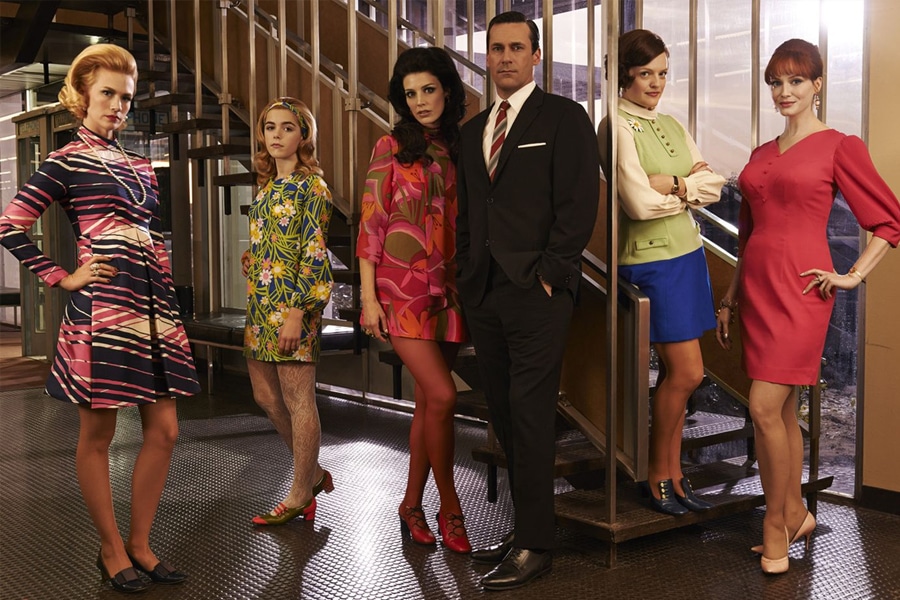
What Is A ‘Mad Man’?
An abbreviation of ‘Madison Avenue Advertising Men’ or a form of ‘Ad Men’, Mad Men was a term used to describe the men who worked in advertising in the 50’s. They coined it.
The show is set at the turn of the 1960’s and ‘Mad Men’ takes us straight to the peak of the mad-ad world. And boy it’s a long way down from there. Against a rich backdrop of workplace chauvinism, sexism, sexual harassment, racism and abstracts, brilliant style and even more brilliant turns of phrase, Mad Men explores the innate desires that can define and often derail us.
Mathew Weiner wrote the show with masterful intent and his insight into the many flaws that make us human is unparalleled. Even the simplest, most minute of exchanges between characters, be it a look or a gesture, is a building block in the framework of the show and its inhabitants—no moment is without its subtext.
The show begins with a slow-moving camera, encroaching on a man who we do not know in a fine suit. He’s sitting quietly in a booth, smoking his cigarette and drinking his Old Fashioned. His hair is perfectly groomed, his voice low and jaw defined. If there ever was an American dream, it dreamed of him.
He quizzes the waiter on his choice of cigarette; you can see he’s digging for some sort of greater truth. The camera pans across the bar to the tune of some old song you kind-of-know from way back when and we the audience are given a glimpse into a world where everybody puffed their problems away and there was money to be made.
The man is Don Draper, Creative Director for Sterling Cooper Advertising. You’ll come to know him as one of the most enigmatic and brilliant characters ever conceived on television. However, you’ll never really know him. Throughout the series though, the audience will see a lot. We’re exposed to his affairs, share in his victorious pitches for the likes of Jaguar & Kodak, and given insight into the raw moments of total despair that come about from Don trying to fill the hole in his heart.
And yet at the close, he’s still a total mystery.
This is because, Don quite simply, is an unreliable narrator. Despite being let into some poignant moments in his life we, the audience, are never quite sure what we aren’t seeing. This first becomes apparent in the S1 premiere when we realise that Don is not, in fact, one of New York’s finest bachelors as the show suggests but has a house, wife and two kids in the suburbs.
However, his unreliable narration extends far beyond this moment to the rest of the series. It is several episodes into the first season when we begin to realise that Don may not be who he says he is. Finally, we have the truth revealed to us: Don Draper is really Dick Whitman, a disgraced deserter from the Korean war who switched dog-tags with a fellow soldier and took his name as his own. Don’s secretive nature is hidden from those in his own life, and we the audience. This is exemplified throughout with various shots of Don from the back—a reminder that even we do not know what he is thinking.
Don’s hidden truths are the source of both his pain and genius. On the one hand, he is a self-made man, and on the other, a total lie.
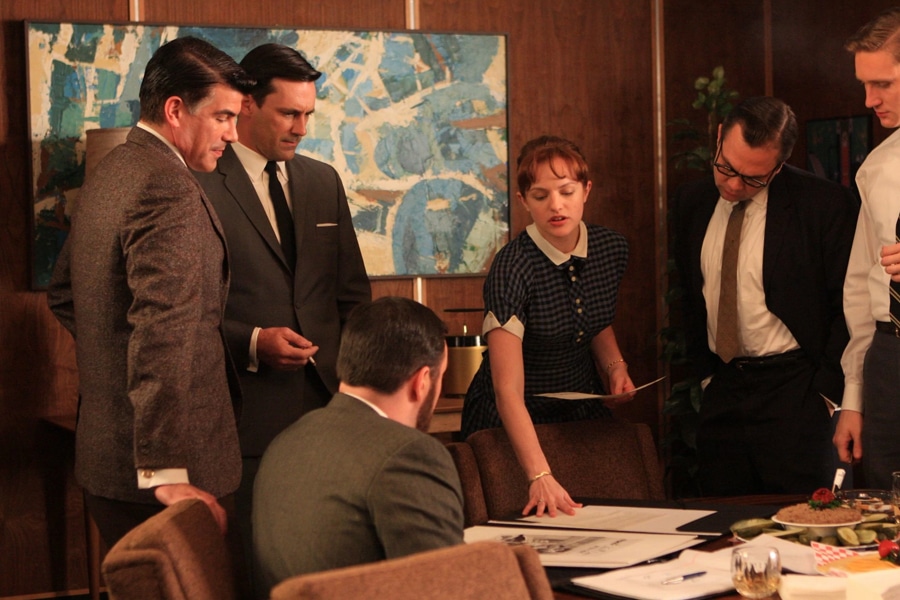
The Characters
The first season, for the better part, revolves around the individuals who work at the agency. Joan, the venus of the office (Christina Hendricks) revolves around the agency pulling those near into her orbit, whether she wants it or not—it is odd to see her treated with both gentlemanly courtesy and vulgar misogyny. The 1960s were a time of total hypocrisy and Mad Men does not let you forget it.
There’s also Pete Campbell from Accounts. Most of you will loathe him. He is petty, eager and utterly graceless. He’s turned down for promotions time after time, rejected by women and is constantly dissatisfied. He’s a loser and yet, he’s us. Battling against the tide that is our professional and personal lives.
Amidst the cast is Roger Sterling, the Mad Man in decline. While Don’s star is rising, he struggles throughout the show to find relevance. He’s hilarious; humour is his both his most charming trait and his defensive wall.
Peggy, a secretary turned creative copywriter, is a character whose arc is one of empowerment and self-realisation. Ken Cosgrove, account man and secret novelist, is proof that men can learn to be better despite being raised to view women as lesser—all in all, there’s just too many great characters to mention meaningfully, like Don’s dissonant wife Betty and those introduced later in the show when the 60’s turn groovy.
The beauty of this myriad of characters is not only in the detail of their lives and personalities but in their stories of personal growth and their failures. It’s only when you finish the series that you truly can appreciate who they were the whole time.
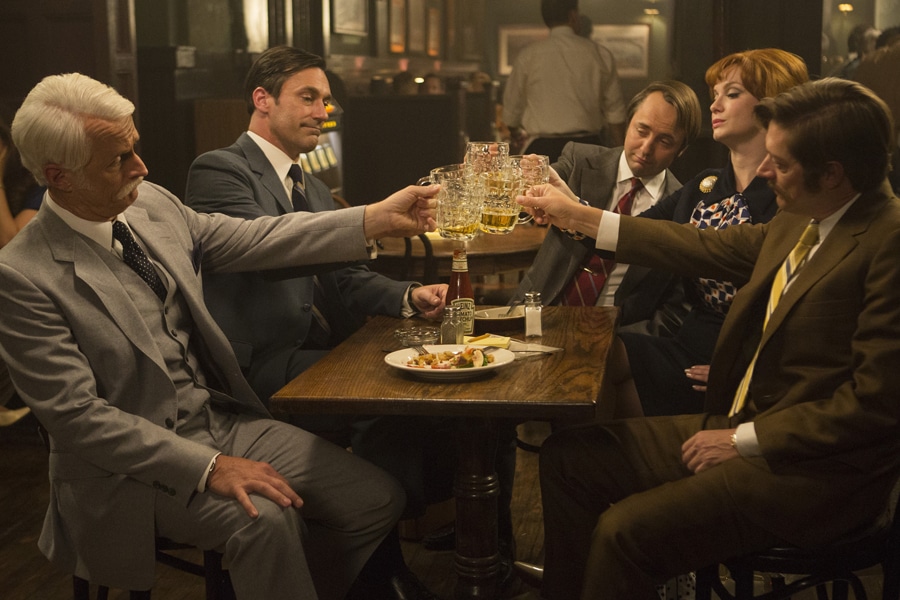
The Mad Men Universe
Mad Men does an incredible job of setting its scenes. Amidst the antics of the office and the storylines of its complex characters we are pulled slowly, but surely into a time when white America was fighting against the integration of African-American citizens and women were suffering through societal and workplace inequality (something that is still a problem today, but not in a way that is truly comparable to 1960’s America).
Through the lens of Mad Men, we see how the main characters are affected by these historical timelines and events. From series beginning to end, we see, along with Don and the rest of them, how the western world was rocked when JFK was shot. The astonishment of Ali’s vanquishing of Liston. One episode beautifully captures what it might have been like for a child to watch Man walk on the moon for the very first time.
The show is both highly realistic in its depiction and yet incredibly surreal at times. There is an abstract musical number; a rendition of “The Best Things In Life Are Free” is performed gayly by one of the shows lead characters, posthumously. It’s all in Don’s mind though of course but it shines a light on one of the show’s most interesting characters and leaves you with a distinct feeling of nostalgia. Juxtaposed with the harsh realities of the time of Mad Men, this kind of creative move is not repeated on the show again and it’s perfect that way.
On that note, I’d be remiss if I didn’t mention the soundtrack. Weiner’s impeccable taste and eye for musical relevance tinge each episode with a myriad of emotions: longing, wonder, fear, and trepidation. A perfect cluster of feelings that many would have felt at a time of huge societal change.
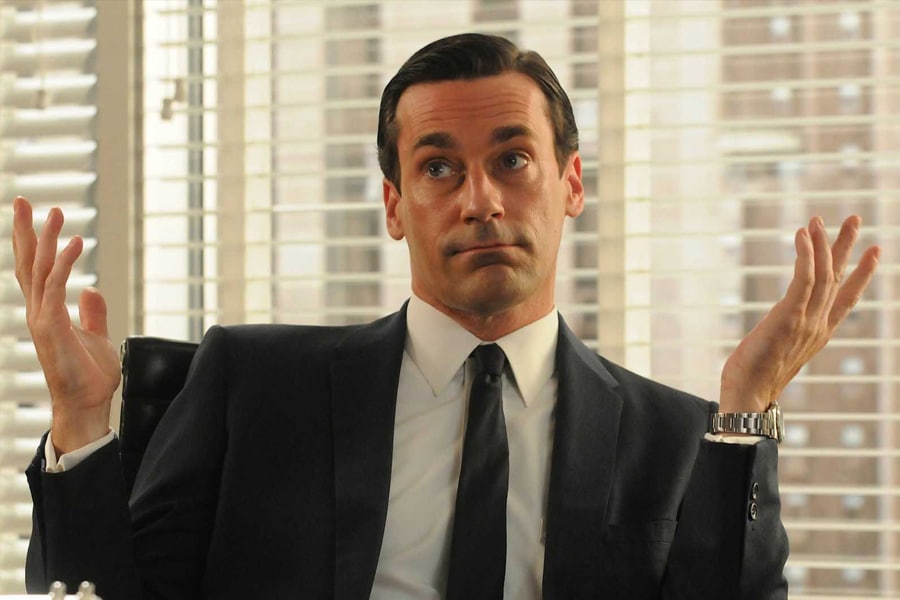
The Result
It’s difficult to sum up a show like Mad Men. There is no particular storyline that one can cling to and say ‘that’s what the show was all about’. It’s just a series of personal developments, with people changing for both the better and worse (depending on who we’re talking about). I could go into the awe-inspiring moment when Don convinces the imposed agency boss to fire he and the rest of the partners so they can form their own firm and raid the office in one of the most stylish coup’s to grace the silver screen. Or I could go into the devastating moment Don finds out his actions have led to his estranged brother’s horrifying suicide and the character parallels that mirror his guilt throughout the episode. But there’s too much to unpack.
What I can say is that Mad Men will make you, without question, feel a complex and wide range of emotions. Fair warning that it takes a bit of work to find the TV gold that lies within the show—Mad Men is not for the impatient viewer. I’d recommend Die Hard if you’re looking for quick thrills.
Mad Men allows us to peek through the keyhole of a door in history that opens to a world we’ll never really know. It’s a feast of high-adultery and professional victory, the crushing lows and dizzying heights of an industry built on a consumerist culture that is the very bedrock of western civilisation today. It’s a looking glass into the best and the worst of us, all served up for you in the form of a bespoke three-piece suit and a dangled cigarette.
5/5
You’ll also like:
Bodyguard Season 2 Confirmed


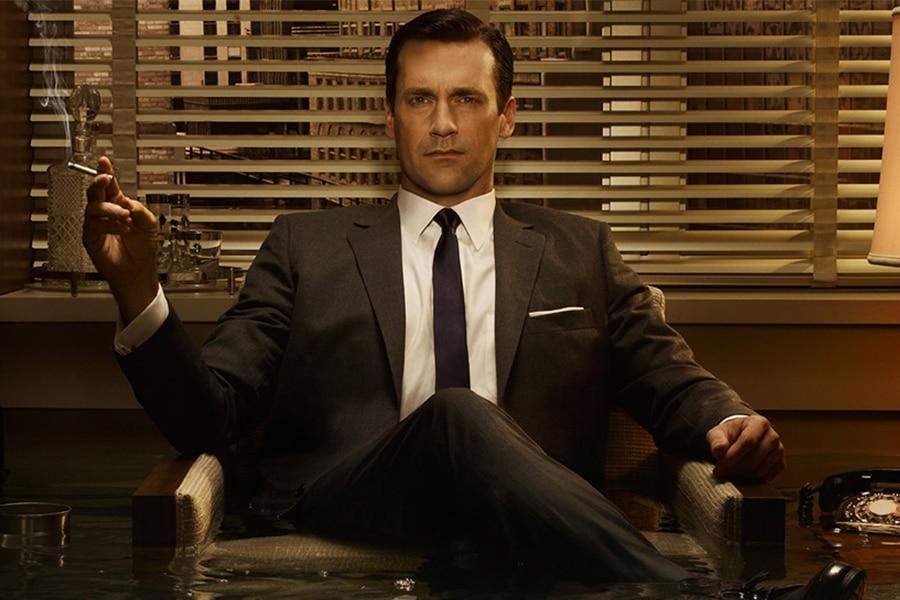




























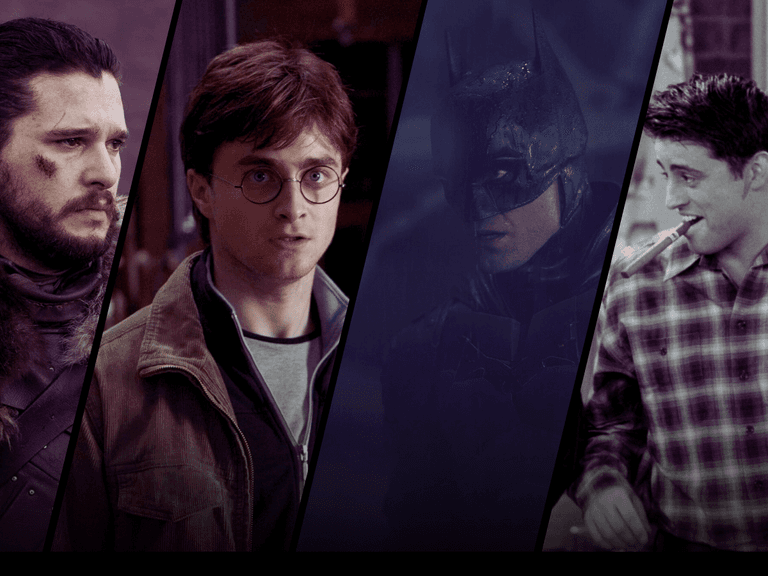


Comments
We love hearing from you. or to leave a comment.